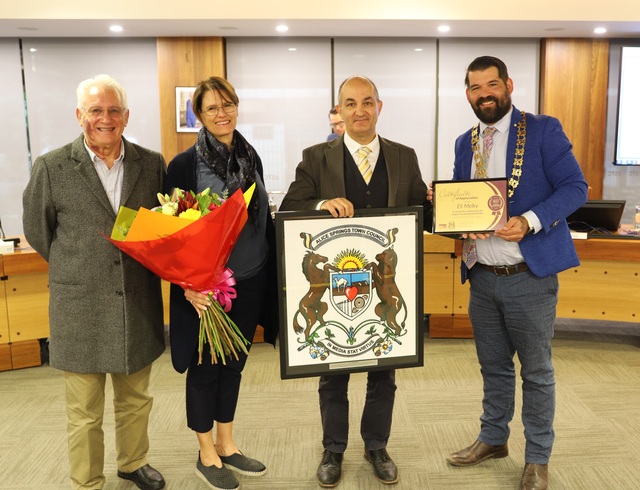The broad range of work of Local Government was on show at the Municipal Association of Victoria (MAV) annual conference held in Melbourne last month. The conference highlighted work in the field of youth, forests, planning our aging community and many other areas.
Opened by State Environment Minister, John Thwaites, he spoke about the role of the government in building up communities and its role in conserving water.
The two day conference, included keynote speaker, Dr Keith Suter. He pointed out the value of scenario planning for Local Government, including a radical swing to the left or the right. He discussed four possible scenarios for the future of Australia and asked delegates to plan for each of them.
Professor of Aging at Swinburne University, Louise Rollard, covered the broader impact of the aging community. She spoke about the forthcoming challenges of an aging community and said the most immediate impact would be the shortage of skilled staff as shown by the current critical lack of engineers and town planners.
“These shortfalls will become more acute in more areas as time progresses,” she said. “Local Governments will also face challenges as the community ages in providing services, as well as finding staff to meet community needs, particularly in Home and Community Care.”
In more general terms, the aging population will have a great impact on the size of the economy. The Victorian Government used the conference to make two announcements about planning and youth affairs.
Youth Charter launched
During the conference, a new Youth Charter Guide was launched by the Victorian Youth Minister, Jacinta Allan. The guide aims to assist Local Government develop youth charters to celebrate the contributions young people make to community life. Connecting Young People in Local Communities was developed in consultation with young people and councils across the State. It is an initiative of the Victorian Government’s Office for Youth, RMIT University and the MAV.
MAV President, Councillor Geoff Lake, said that youth charters will assist councils to identify important fundamentals of participation and decision making that contributes to effective relationships with young people at a local level.
“Engaging with young people and responding to their needs is an area every council contends with in its economic, social, cultural and environmental planning and service delivery functions,” he said.
“By understanding the values and issues of young people and including them in the decision making process, councils can greatly enhance relationships with young people in the community and tailor appropriate local responses. The development of a youth charter affirms young people as valued community members and formalises a council’s commitment to work in partnership with them to determine local priorities and actions.”
State and Local planning funding boost
Also at the conference, the MAV welcomed moves by the State Government to build better working relationships with Local Government on critical planning issues facing Victorian communities.
Councillor Lake said Planning Minister Mary Delahunty’s announcement of $200,000 funding to the MAV represented a positive step towards the realisation of Melbourne 2030 and new zones for rural Victoria through more coordinated sector wide approaches.
“There has never been a more pressing need for the two levels of government to work productively together to plan for the future of our cities, suburbs, towns and farms,” Councillor Lake said.
“It is no secret that recent key strategic planning reforms have presented significant challenges for councils and their communities, particularly during the transitional phases.
“Concerns that have caused some uncertainty and angst have included the need to maintain protection of local neighbourhood amenity, development of structure plans for activity centres, retention of existing rights of land owners and translation of land to new rural zones.”
MAV recently raised these concerns with the Minister and proposed a partnership model to improve coordination and deliver more certainty for both metropolitan and rural councils.







